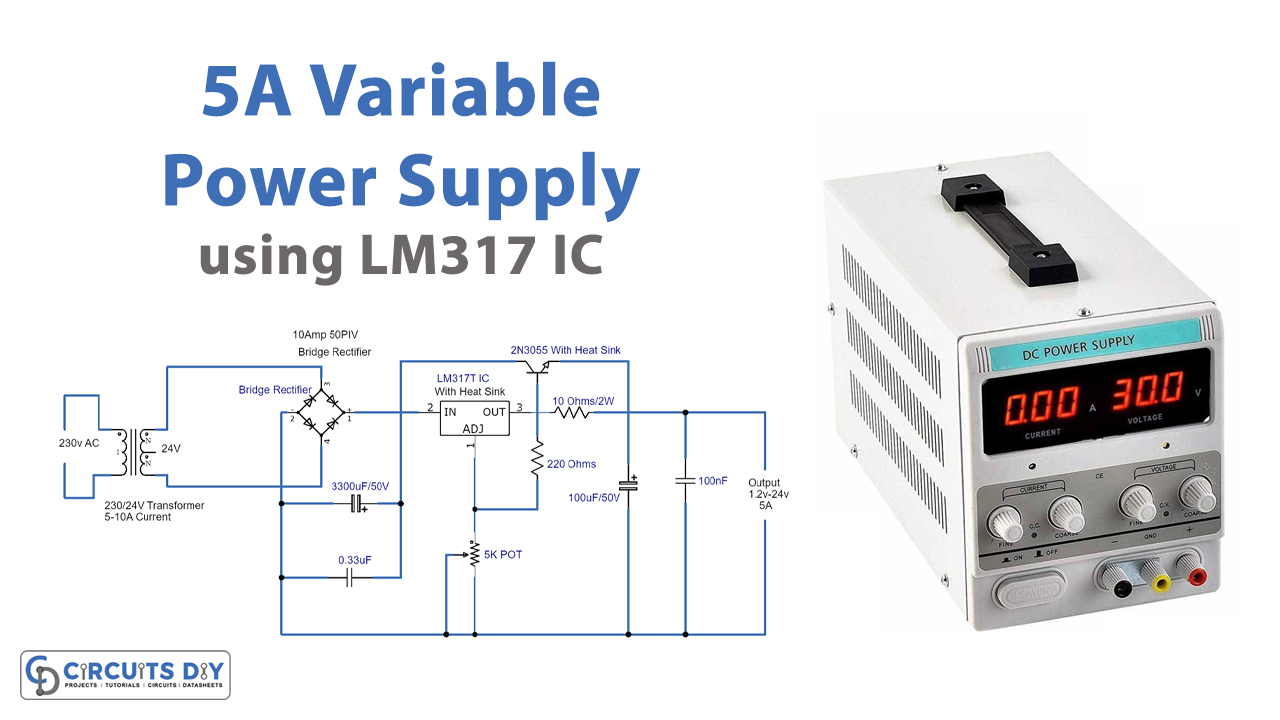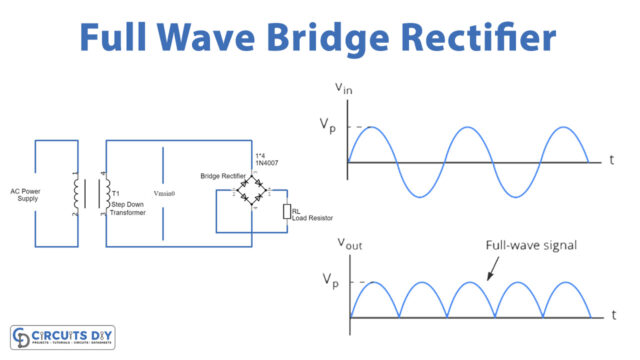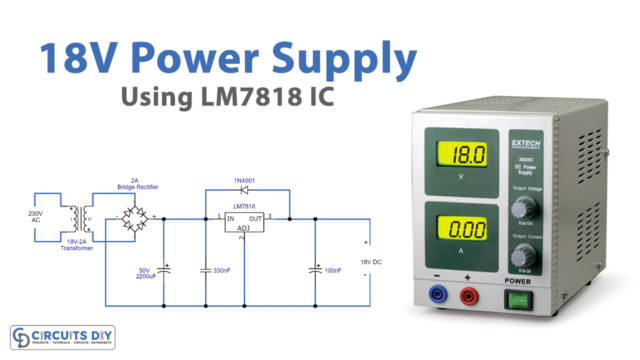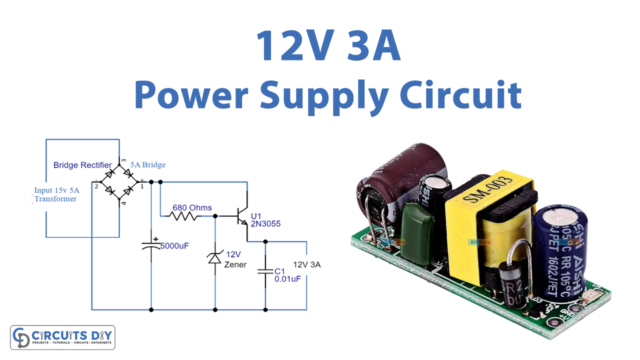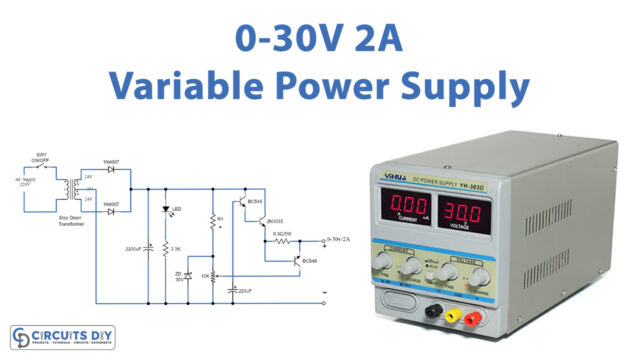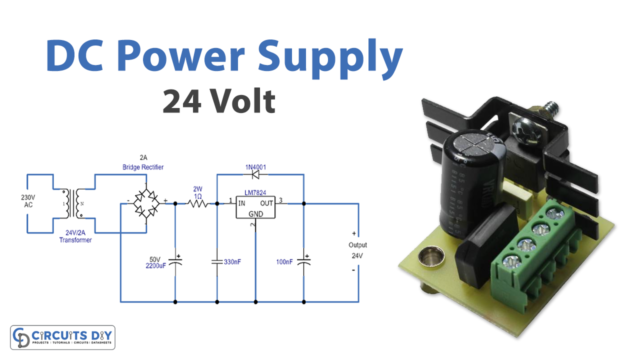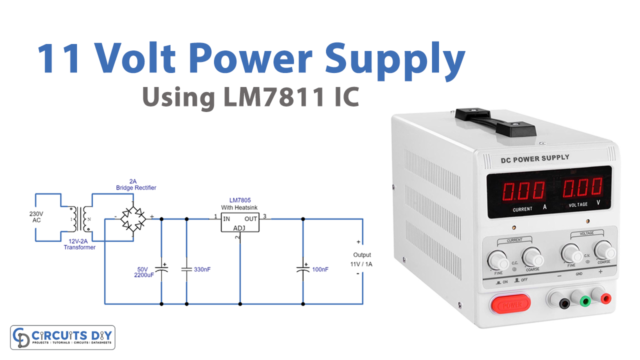Introduction:
Each electronic system operates mainly using a power supply. With the advancement in electronics technology, most of the systems are becoming computer-controlled and here variable or adjustable power supplies come into use. Adjustable DC power supplies allow users to adjust the voltage or current by any means like a potentiometer, digital input, autotransformer, etc. There are three main types of variable power supply i.e. locally adjustable, remotely adjustable, and programmable.
A simple and locally adjustable power supply uses a potentiometer or other voltage regulating devices to adjust the voltage or current at the output. This post explains the working of a variable DC power supply circuit that has an adjustable voltage range of 1.2V to 24V and current up to 5A. It has many features like short-circuit protection, less ripple factor, output voltage tolerance, etc.
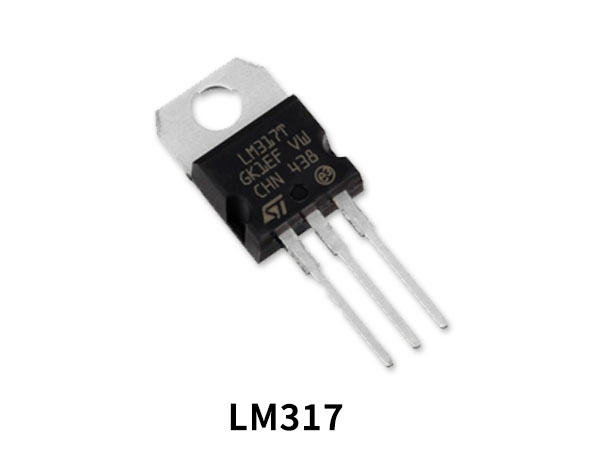
Hardware Component
The following components are required to make an Adjustable Power Supply Circuit
| S.no | Component | Value | Qty |
|---|---|---|---|
| 1. | Transformer | 22/24V | 1 |
| 2. | Bridge Rectifier Diode | 10A 50 PIV | 1 |
| 3. | Voltage Regulator IC | LM317 | 1 |
| 4. | Transistor | 2N3055 | 1 |
| 5. | Potentiometer | – | 1 |
| 6. | Electrolyte Capacitor | 3300uF/50V,100uF/50V | 1, 1 |
| 7. | Ceramic Capacitor | 0.33uF, 100nF | 1, 1 |
| 8. | Resistor | 10 Ohms, 220 Ohms | 1, 1 |
LM317 Pinout

For a detailed description of pinout, dimension features, and specifications download the datasheet of LM317
2N3055 Pinout
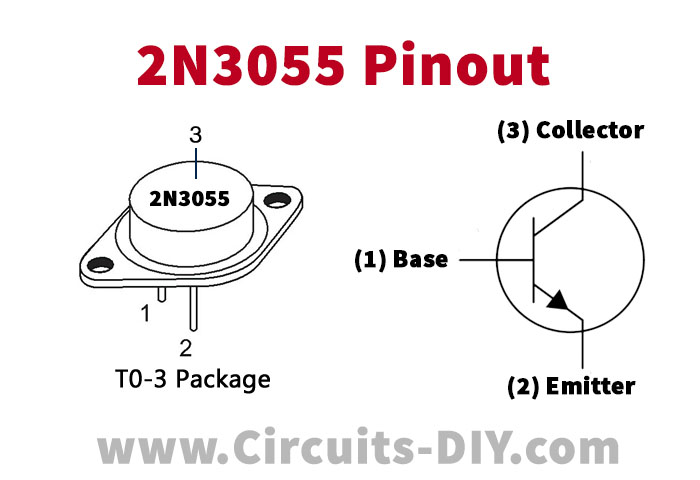
For a detailed description of pinout, dimension features, and specifications download the datasheet of 2N3055
Adjustable Power Supply Circuit
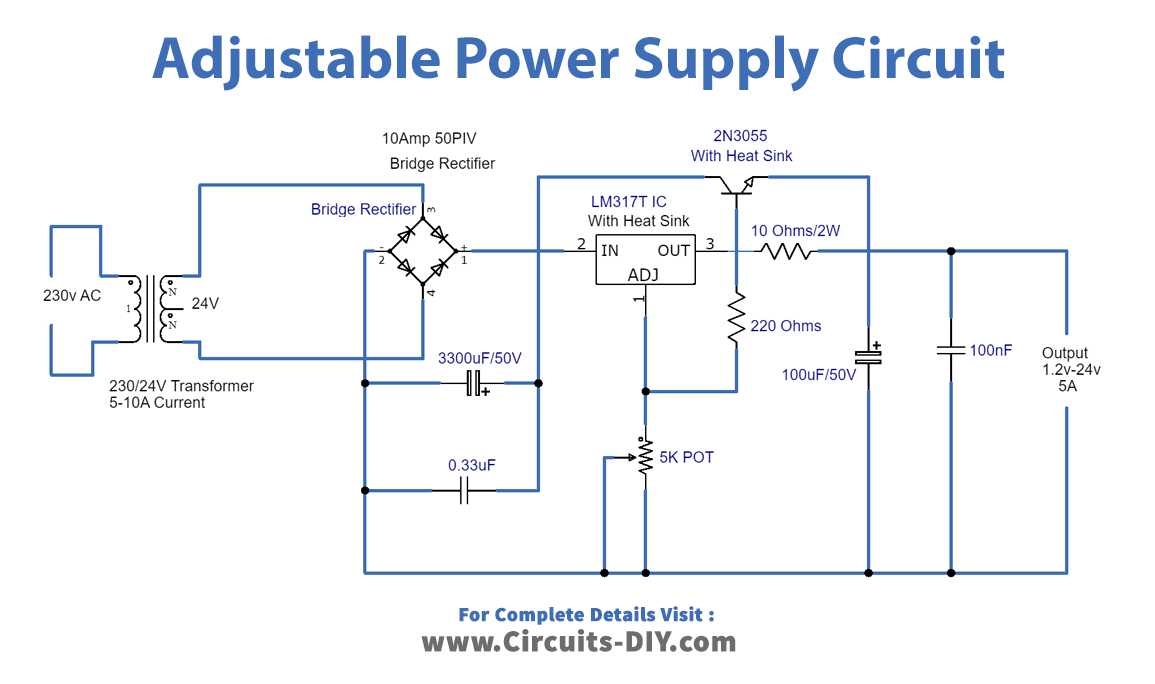
Working Explanation:
The working of the given circuit is explained in detail as:
Transformer: The transformer transfers electrical energy from one circuit to another by the principle of mathematical induction keeping the frequency constant. The first part of the circuit is the transformer which takes power input of 220 to 230V AC at its primary, steps it down to 24V AC, and yields at its secondary.
Bridge Rectifier: It takes the input from the transformer’s secondary winding and transforms the AC signal into pulsating DC signal by means of full-wave rectification. Rectifiers consist of diodes and resistors.
Smoothing: After the conversion of the AC signal to the DC signal, the capacitor converts the pulsating DC signal into a non-pulsating DC signal.
LM317 Voltage Regulator: The IC LM317 is a voltage regulator that supplies different output voltage levels at its output for incoming constant voltage using a variable resistor to adjust the output voltage.
Current Amplifier: The regulator IC draws a current limited to 1.5A which is amplified to 5A using a power transistor 2N3055. The transistor is a current controlling device in which a small current at the base is used to control the large current drawn at the emitter and collector.
Ripple Rejection: The last stage is to clear the ripples from the non-pulsating DC signal using a capacitor.
At last ripple-free, variable DC signal is received at the output. A 5K ohms potentiometer is used to regulate the voltage received at the output.
Applications:
Variable power supplies can be useful for a number of applications, a few are listed below:
- It can be commonly used for testing electronic projects in the laboratory.
- It can be utilized in audio, lighting, and sensor applications.
- Mobile phone chargers, amplifiers, or oscillators are also applications of DC power supply.
- Adjusting gain of DC-DC converters.


